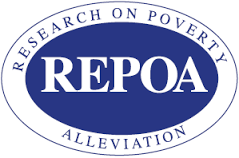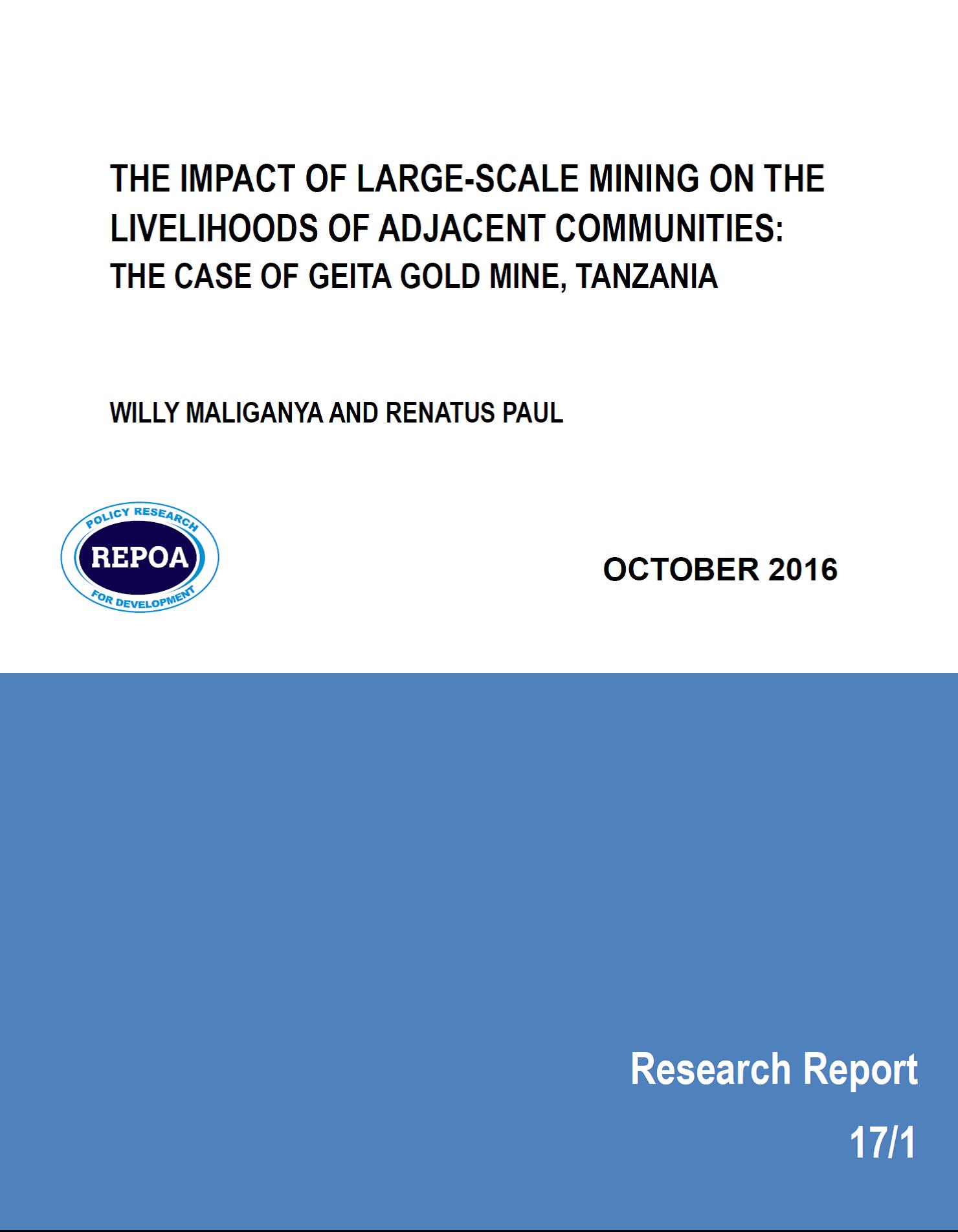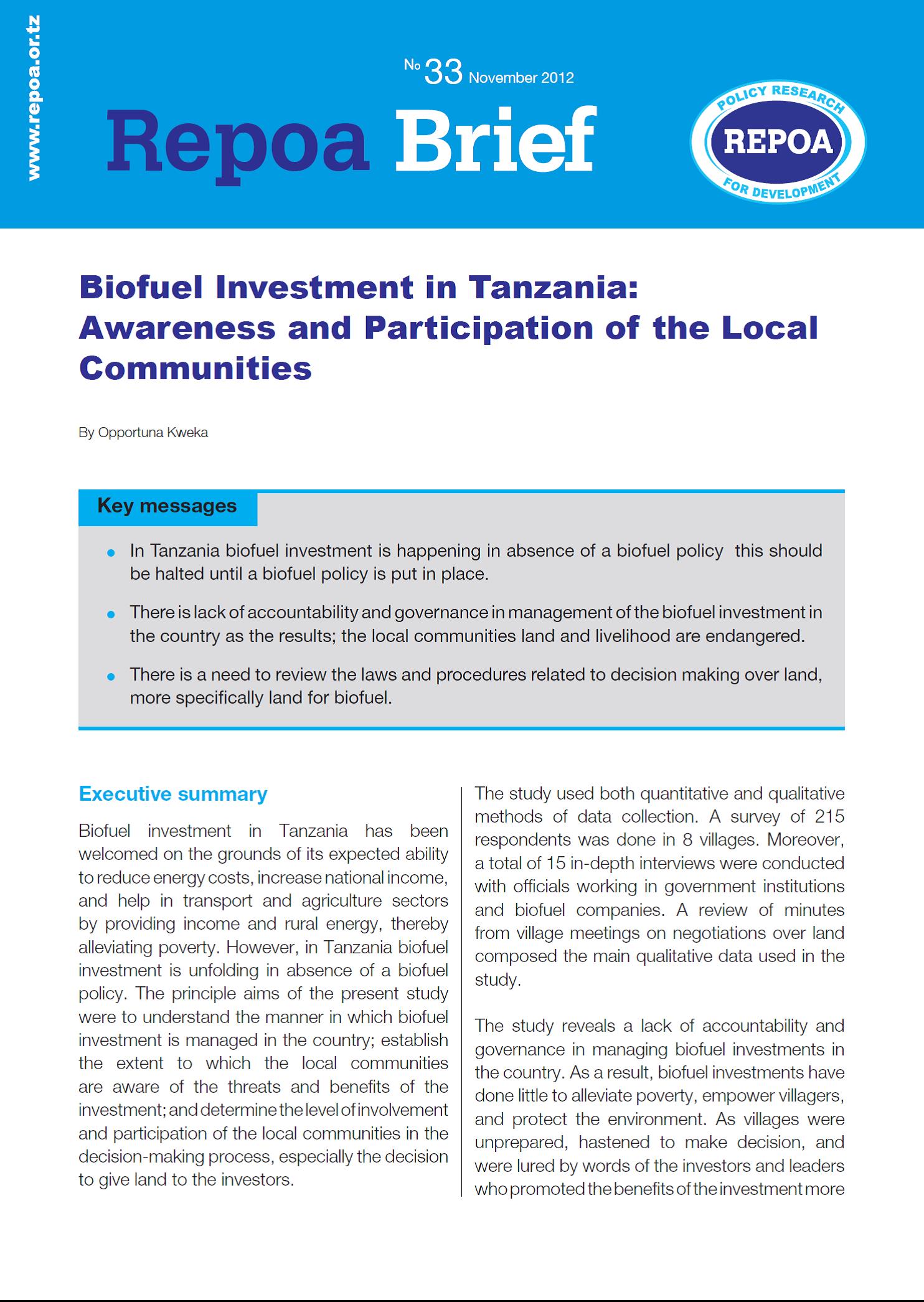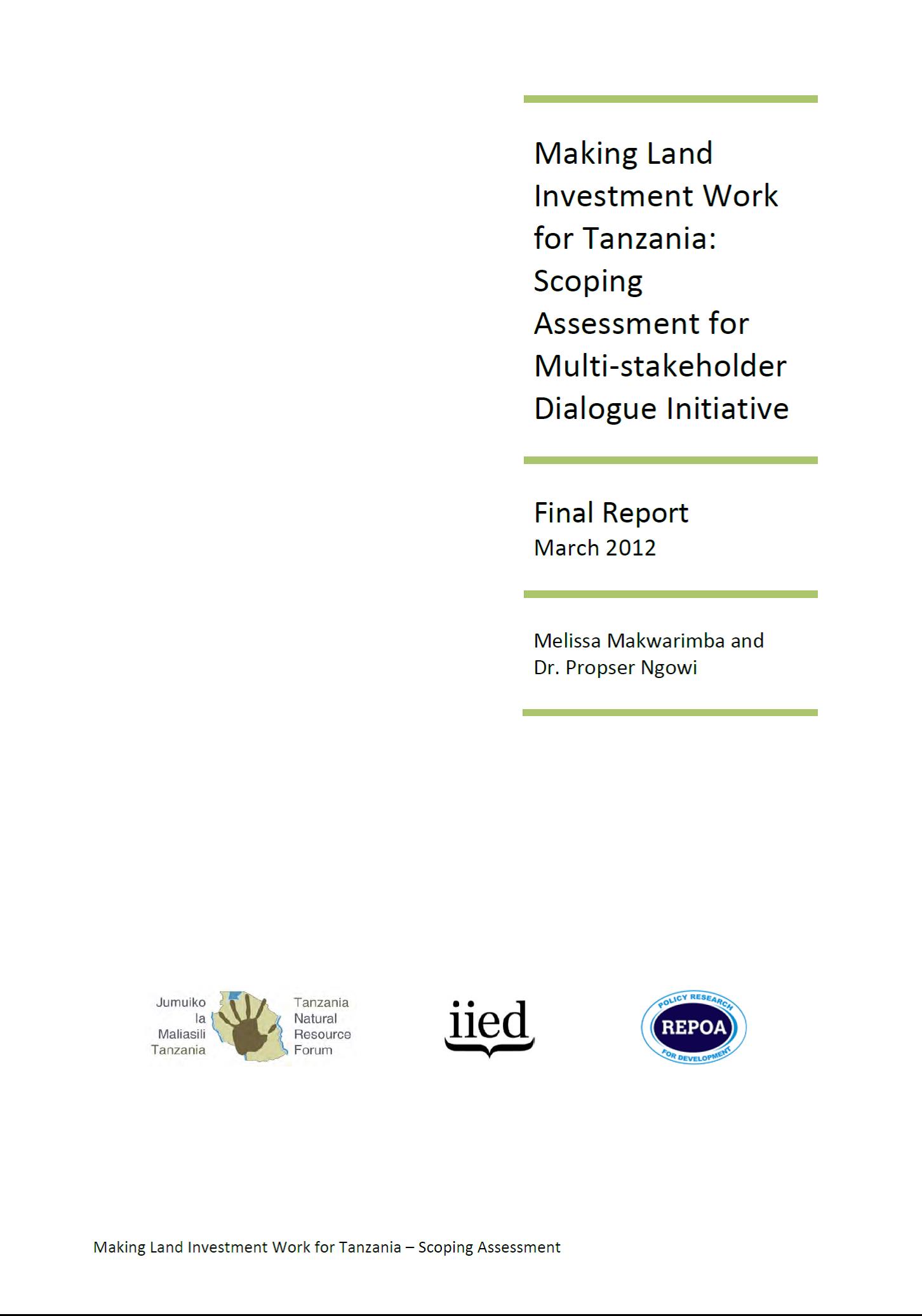Focal point
Location
REPOA was formed in 1994 in Tanzania with the mandate to contribute to the alleviation of poverty in its multiple dimensions through research and capacity building. Over time, REPOA’s mandate has expanded beyond alleviating poverty to encompass growth and socio-economic transformation for poverty reduction.
REPOA’s STRATEGIC PLAN FOR 2015-2019
The experience from implementation of the 2010 - 2014 strategic plan, the as well as recent developments and concerns in national, regional and global economies have informed the development of REPOA’s new five-year strategic plan for 2015-2019. REPOA continues to focus on socio-economic transformation for poverty reduction through inclusive development.
Our Vision
To be a leading research institution in the production of knowledge that will contribute to improving the lives of people in Tanzania.
Our Mission
To facilitate and undertake research, training and outreach.
Objectives
During the next five years, REPOA will:
I. Strengthen the capacity of the intellectual resource (producers and users of knowledge)
II. Undertake, facilitate and encourage strategic research to influence policy
III. Facilitate and inspire stakeholders to utilize research findings
Outcome areas
REPOA will deliver its program under four strategic outcome areas:
1. Knowledge for better policy results generated
2. Knowledge is shared, disseminated and utilized
3. Capacity of researchers and research users enhanced
4. Programs are efficiently and effectively delivered
Core Values
Quality: Quality will be demonstrated in all REPOA activities. Well-considered methodologies will be applied in our work to ensure rigour and excellence. We will communicate clearly and creatively to connect with our diverse audiences.
Integrity: REPOA conducts its business transparently. Employees and associates shall not engage in activities which could cause conflict of interest. All business chains at REPOA shall be conducted in a manner that minimizes risk and maintains the good reputation of the organization and its stakeholders.
Inclusiveness: REPOA values contributions from all people and shall not discriminate on the basis of gender, ethnicity, religious background, or political or other affiliations or views.
Accountability: All employees and associates at REPOA shall expressly demonstrate commitment to the mission and objectives of the organization. REPOA promotes teamwork in our day-to-day activities but encourages individual responsibility and accountability for activities for which employees and associates are directly responsible.
Innovation: REPOA recognizes that for continuous improvement innovation is essential. All employees and associates shall exercise their optimal intellectual capabilities to learn and improve the ways things are done. REPOA shall provide space and opportunities for all to apply innovative solutions to fulfill our mission in the most efficient and effective ways.
Funding
Our primary sources of funding are from Development Partners, collaborative projects and commissioned work from local and international organizations. REPOA also receives funding from the Think Tank Initiative that is administered by the International Development Research Centre (IDRC) of Canada.
Members:
Resources
Displaying 1 - 4 of 4The Impact of Large-Scale Mining on the Livelihoods of Adjacent Communities
This study assessed the contribution of Geita Gold Mine (GGM) to the livelihoods of local communities in Geita District. Specifically, it assessed the effectiveness of corporate social responsibility implementation, determined the extent to which GGM has contributed to socio-economic development in the study area, and examined the communities’ perceptions of environmental problems associated with mining activities and their impact on community well-being. A cross-sectional research design was employed, in which qualitative and quantitative methods of data collection were used.
Biofuel Investment in Tanzania
The study reveals a lack of accountability and governance in managing biofuel investments in the country. As a result, biofuel investments have done little to alleviate poverty, empower villagers, and protect the environment. As villages were unprepared, hastened to make decision, and were lured by words of the investors and leaders who promoted the benefits of the investment more than its threats.
Making Land Investment Work for Tanzania
The purpose of this assignment was to establish whether there is appetite to hold a public debate on how to realise better land‐based investments in Tanzania. It also aimed at identifying what would be the discussion issues and most appropriate mechanism to allow different actors from different levels to articulate their perspectives on land‐based investments in Tanzania. This has been triggered by the sensitivity surrounding the topic.
Poverty and Changing Livelihoods of Migrant Maasai Pastoralists in Morogoro and Kilosa Districts, Tanzania
This study documents the plight of the Maasai pastoralists who have moved to Morogoro and Kilosa districts as a result of the recent socio-economic developments and environmental changes in Maasailand. The objective of this study was to analyse how the Maasai migrants have adapted themselves to the new ecological conditions and the impact of such adaptations on their livelihoods.





